Healthy Plants, Happy Garden: Mistakes You Must Avoid
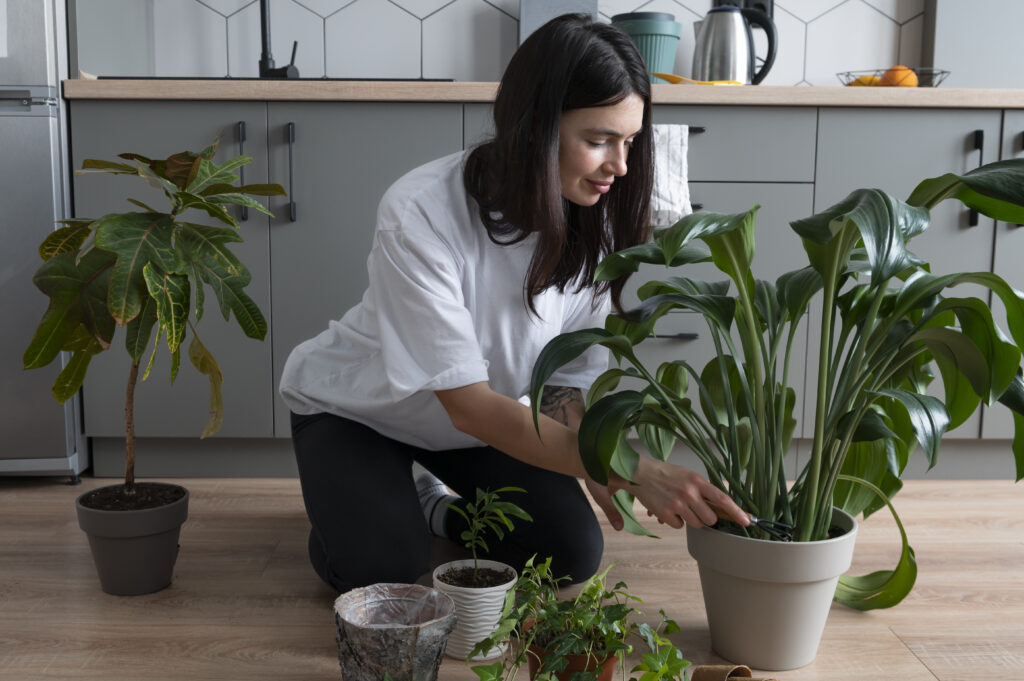
Taking care of a garden goes beyond simply planting seeds and watering them. It’s a journey of patience, observation, and joy. Imagine stepping into your garden every morning and seeing lush green leaves, colourful flowers, and maybe even fresh vegetables ready to pick. Sounds amazing, right? But for beginners, it’s easy to make mistakes that can harm your plants and reduce the beauty of your garden.
I’ve been gardening for years, and trust me, even the smallest errors can make a huge difference. From watering too much to ignoring pests, many beginners unknowingly harm their plants. In this guide, I’ll share common mistakes you must avoid, along with tips, importance points, and real-life examples. Following these best gardening tips for beginners India will help you create a thriving, Happy Plants, Happy Garden.
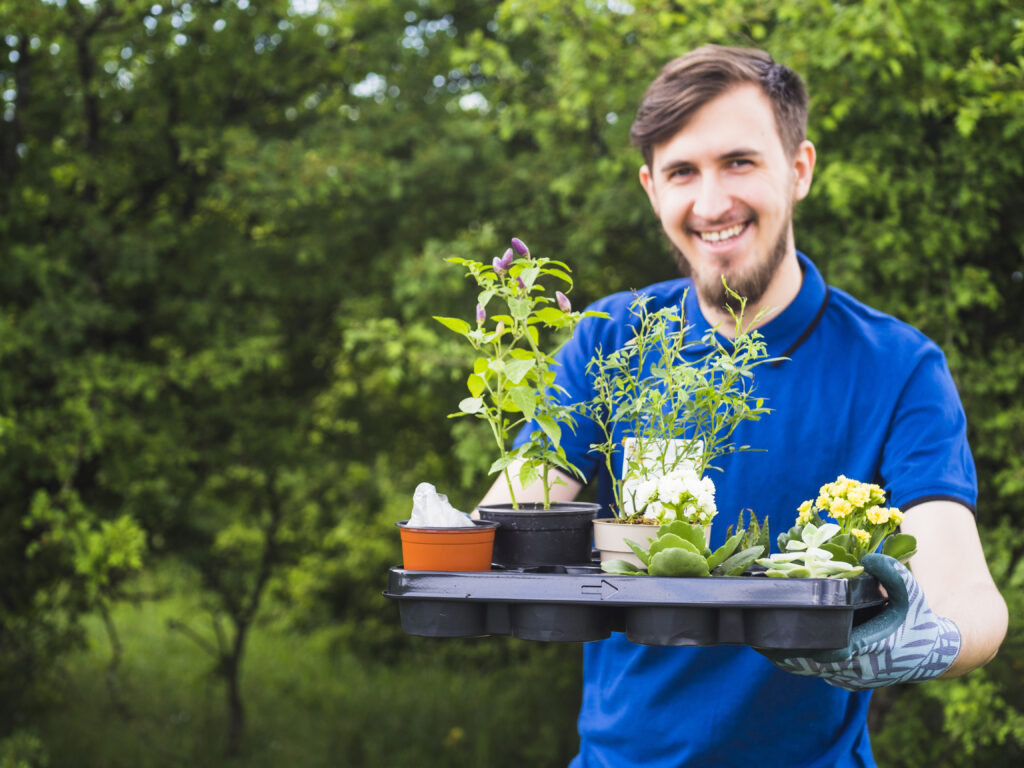
1. Choosing Plants According to Weather
Different plants thrive in different weather conditions. For example:
Summer: Marigold, hibiscus, basil, tomatoes, sunflower, bougainvillea, okra, bell peppers, zinnia, these plants need full sun and warm temperatures.
Winter: Chrysanthemum, pansy, spinach, coriander, radish, carrot, calendula, mustard, lettuce, these grow well in cooler weather.
Monsoon: Ferns, money plant, hibiscus, peace lily, turmeric, ginger, Colocasia (Arbi), elephant ear, impatiens these love humidity and moderate rainfall.
Importance: Planting according to weather ensures better growth, flowering, and harvest. Seasonal-friendly plants require less care and are more resistant to pests and diseases.
Tips:
- Research local weather patterns before planting.
- Start with hardy plants if you are a beginner.
Rotate plants according to season for year-round greenery.
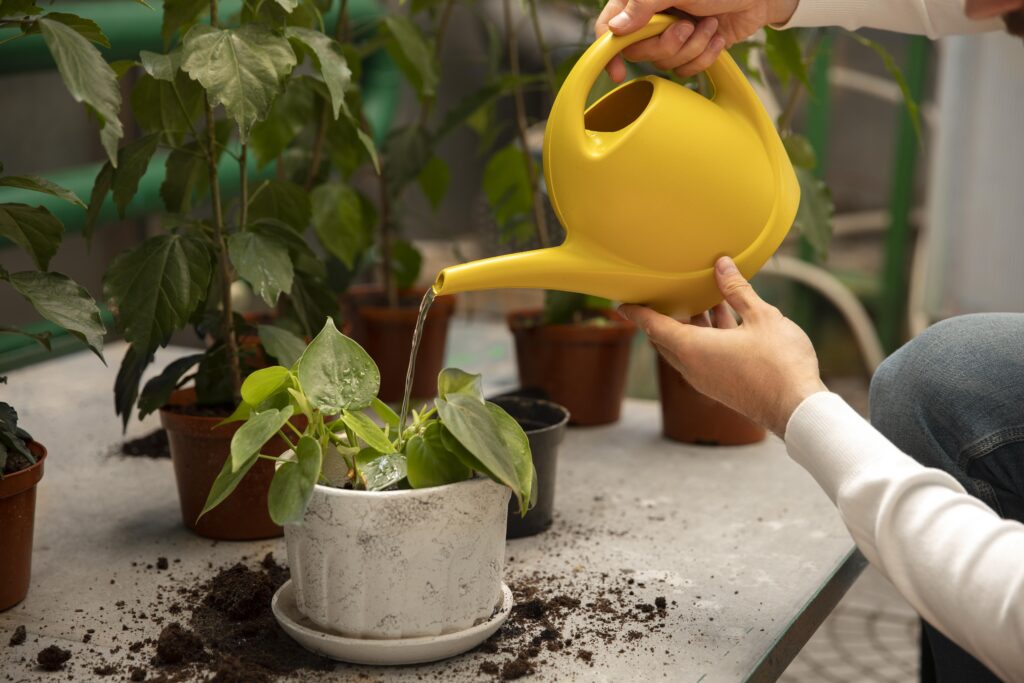
2. Overwatering Your Plants
Watering is essential, but too much water can be deadly. I remember my first experience with a money plant I loved it so much that I watered it every day. Within a week, the leaves started turning yellow and drooping. Why? I overwatered it.
Overwatering can cause root rot, fungal infections, and weak plants. Some plants, like succulents and cacti, store water in their leaves and need very little water. Others, like vegetables and flowering plants, need regular watering but not in excess.
Importance: Proper watering ensures roots get oxygen, nutrients are absorbed efficiently, and plants grow strong.
Tips for beginners:
- Check the soil: water only if it feels dry.
- Water early morning or late evening to prevent evaporation.
- Make sure your pots have drainage holes so excess water can escape and roots don’t get soggy.

3. Ignoring Sunlight Needs
Sunlight is like food for plants. Without it, they cannot produce energy, grow strong, or bloom beautifully. I once planted a hibiscus in a shaded corner. Weeks went by, but no flowers appeared. When I moved it to a sunny spot, it bloomed within days.
Plants have different sunlight requirements:
- Full sun (6–8 hours) – tomatoes, hibiscus, marigold
- Partial shade – basil, mint, geranium
- Shade – ferns, peace lilies
Importance: Correct sunlight ensures strong growth, vibrant colours, and better flowering or fruiting.
Tips:
- Observe your garden’s sun pattern.
- Rotate pots regularly for even sunlight exposure.
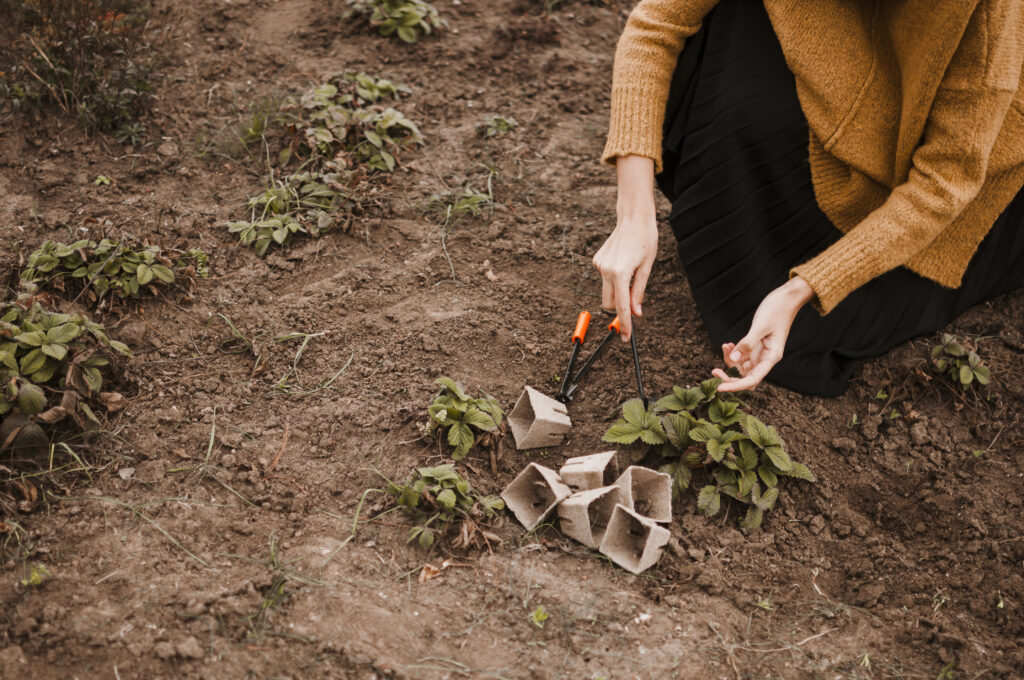
4. Using the Wrong Soil
Soil is the foundation of a healthy garden. Poor-quality soil can stunt growth and make plants weak. I once tried growing a rose bush in sandy soil without any compost. The bush barely grew. After adding rich, loamy soil with compost, it flourished within months.
Different plants need different soil types:
- Loamy soil – most flowering plants
- Sandy soil – succulents, cacti
- Clay soil – retains water, needs compost for drainage
Importance: Right soil supports healthy roots, proper drainage, and nutrient absorption.
Tips:
- Mix compost or organic fertilizers.
- Test soil pH for sensitive plants like roses or blueberries.
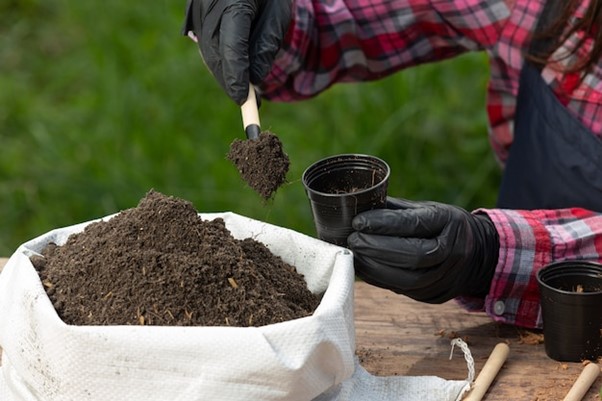
5. Skipping Fertilizers
Just like humans need vitamins, plants need nutrients. Skipping fertilizers leaves them weak, with pale leaves and fewer flowers. Organic options like compost, cow dung, and vermicompost not only feed plants but also improve soil health naturally.
Importance: Fertilizers provide essential nutrients and encourage lush, healthy growth.
Tips:
- Fertilize according to plant type and season.
- Avoid over-fertilizing, which can burn roots.
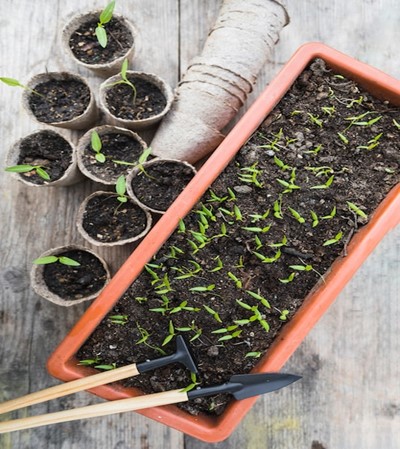
6. Planting Too Close
Crowding plants reduces air circulation, sunlight, and increases competition for nutrients. My basil plants were too close once, and the leaves became yellow. After spacing them properly, they grew taller and healthier.
Importance: Proper spacing allows roots and leaves to grow freely and reduces plant stress.
Tips:
- Recommended spacing: tomatoes (18–24 inches), basil (12 inches).
- Use trellises for climbing plants.
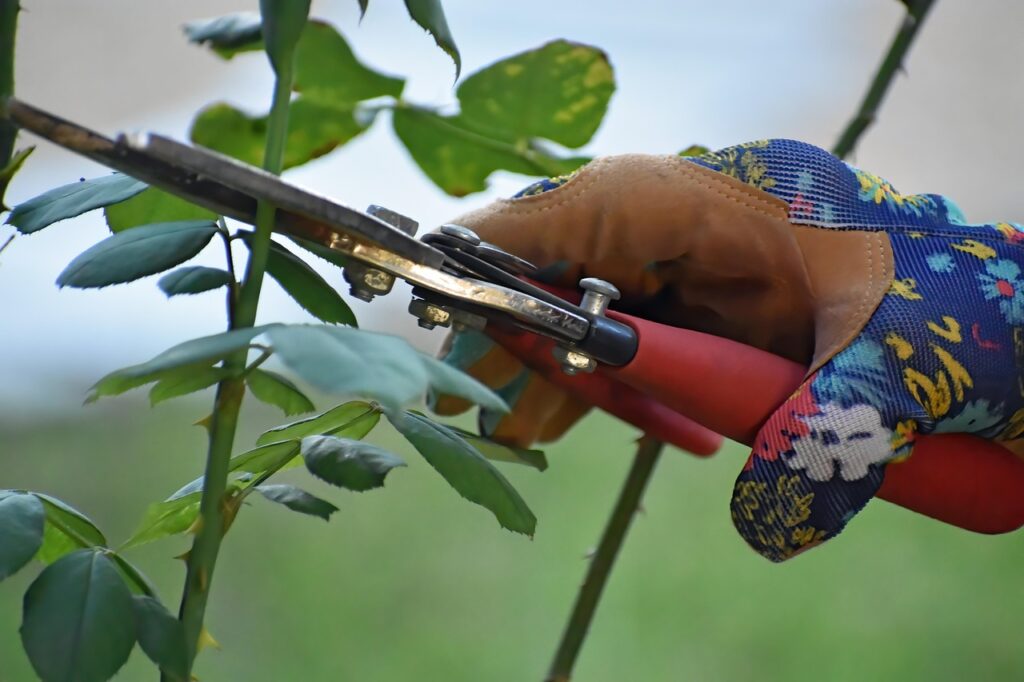
7. Ignoring Pruning
Pruning may seem harsh, but it is necessary. Removing dead leaves and trimming overgrown branches helps plants grow stronger. Fruit plants benefit the most, producing bigger and better-quality fruits.
Importance: Pruning increases airflow, reduces pests, and strengthens plants.
Tips:
- Use clean scissors or pruning shears.
- Prune at the right time: early spring for most plants.
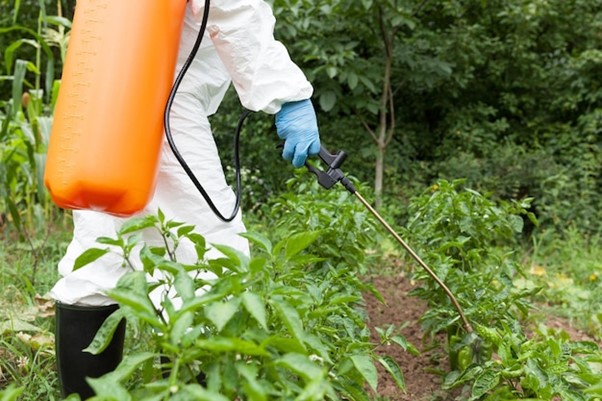
8. Forgetting Pest Control
Pests are one of the biggest challenges for beginners. Aphids, whiteflies, and caterpillars can quickly damage leaves, flowers, and fruits. I once ignored tiny whiteflies on my tomato plants. Within days, half the leaves turned yellow.
Importance: Early pest control protects plants, reduces losses, and keeps your garden vibrant.
Tips:
- Inspect leaves regularly.
- Use neem oil, garlic spray, or soapy water.
- Introduce natural predators like ladybugs.
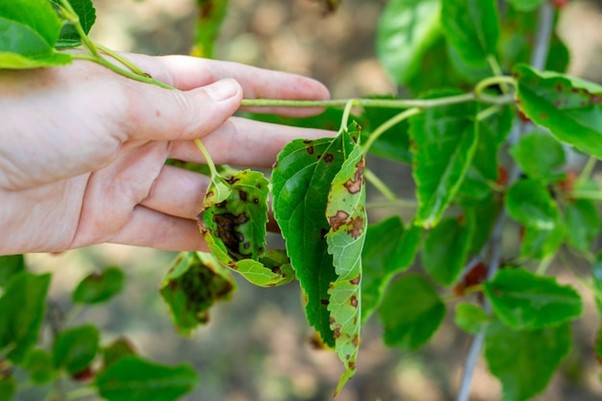
9. Overlooking Plant Diseases
Sometimes plants get sick and show symptoms like yellowing leaves, wilting, or black spots. Ignoring these signs allows the disease to spread. I noticed small brown spots on my hibiscus leaves and treated them immediately with a natural fungicide. The plant recovered quickly.
Importance: Early treatment saves plants and prevents the spread of diseases.
Tips:
- Remove infected leaves immediately.
- Use organic fungicides when needed.
- Maintain garden hygiene.
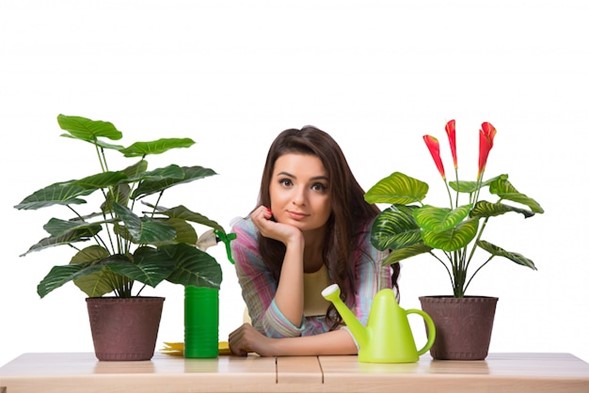
10. Neglecting Seasonal Needs
Plants respond differently to seasonal changes. Winter may require less water and protection from frost, while summer needs more hydration and shade from intense sun. Flowering plants bloom in specific seasons, and vegetables have seasonal growth cycles. Adjusting care according to each season ensures healthy, thriving plants year-round.
Importance: Seasonal care ensures plant survival and productivity.
Tips:
- Adjust watering and fertilization according to the season.
- Protect sensitive plants from frost or heat.

11. Ignoring Proper Tools
Using hands alone or improper tools can damage plant roots, compact soil, and make gardening harder. Investing in basic tools like a trowel, pruning shears, watering cans, gloves, and rakes not only saves time and effort but also ensures plants grow safely and stay healthy.
Importance: Proper tools improve efficiency, prevent plant damage, and reduce effort.
Tips:
- Keep tools clean to prevent rust and infections.
- Invest in basic tools before starting your garden.
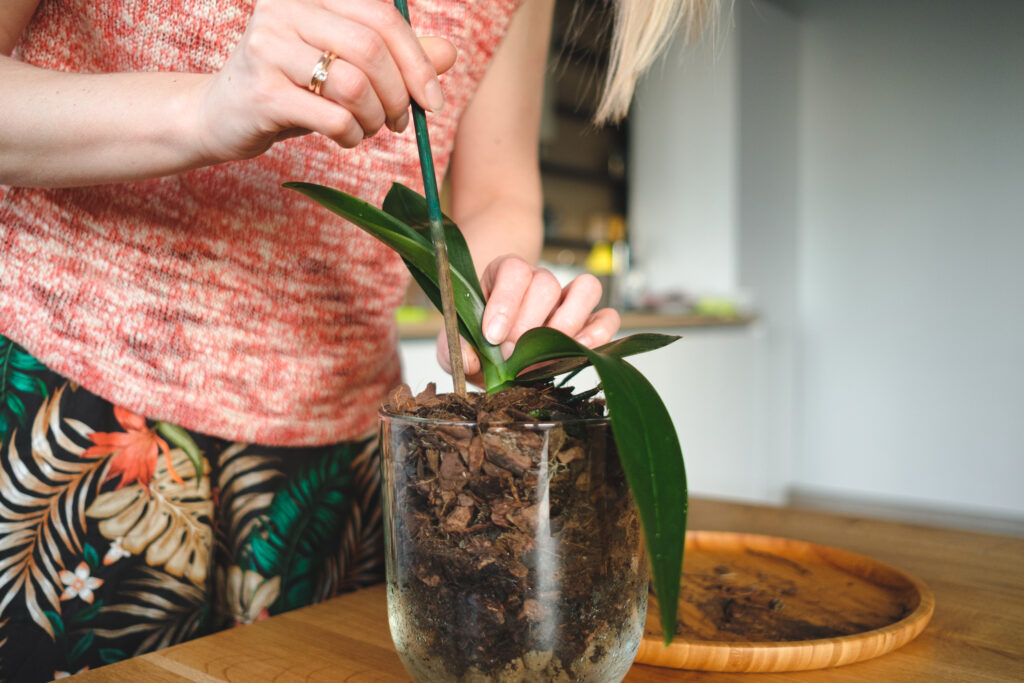
12. Daily Garden Monitoring
Spend a few minutes each day observing your plants closely. Check for signs of pests, wilting, yellow leaves, or unusual growth. Early detection allows you to take quick action, preventing small issues from turning into serious problems. Consistent monitoring keeps your garden healthy and thriving all year.
Importance: Daily observation keeps plants healthy and reduces long-term damage.
Tips:
- Walk through your garden daily.
- Take notes on plant health and growth.
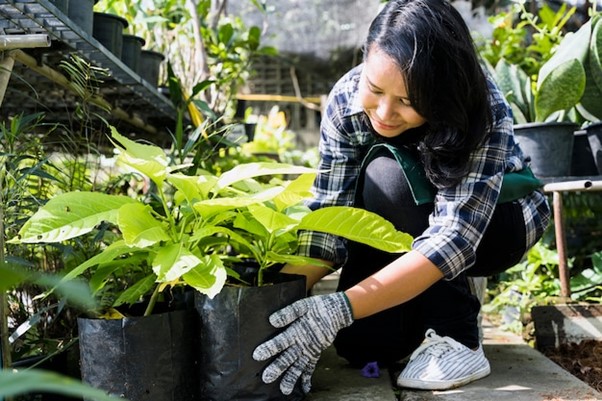
13. Companion Planting
Companion planting is a smart gardening technique where certain plants help each other grow better. For example, planting basil near tomatoes can repel pests and improve tomato flavour. Similarly, marigolds protect vegetables from harmful insects. Choosing the right plant combinations boosts growth, reduces diseases, and makes your garden more productive naturally.
Importance: Companion planting reduces pests, boosts growth, and improves yields naturally.
Tips:
- Research compatible plant pairs.
- Avoid planting incompatible species together.
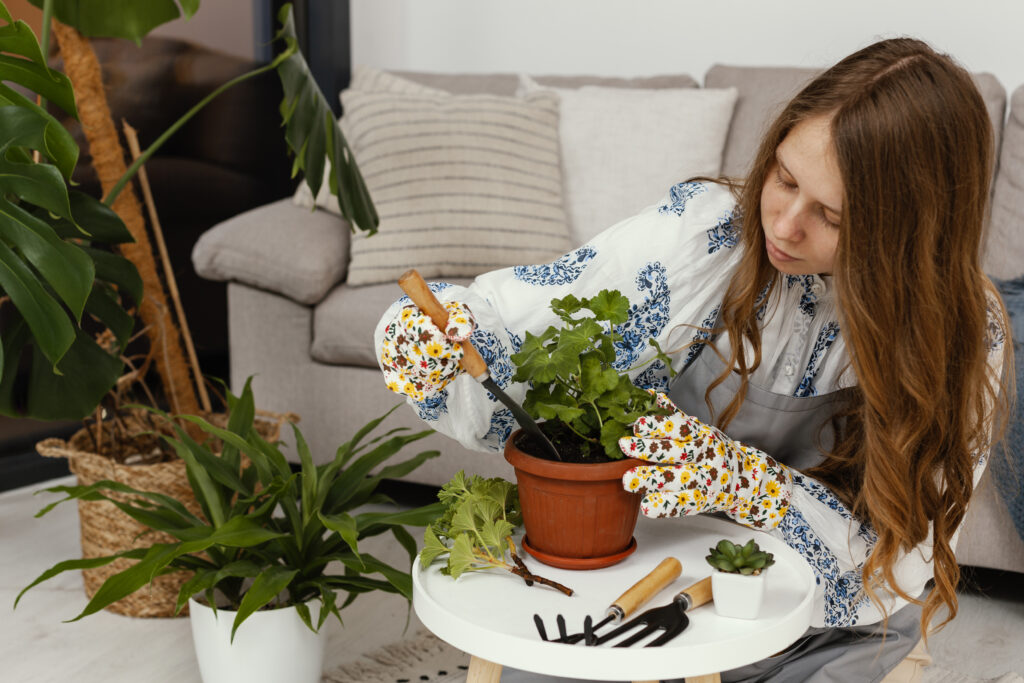
14. Using Organic Methods
Chemical fertilizers and pesticides may harm the soil, beneficial insects, and even humans over time. Organic gardening uses natural fertilizers, compost, and plant-based pest control, creating a safe, eco-friendly environment. This method improves soil health, encourages biodiversity, and ensures plants grow stronger, healthier, and more resilient naturally.
Importance: Organic gardening ensures a healthy and sustainable environment.
Tips:
- Use compost, natural fertilizers, and neem oil.
- Encourage beneficial insects like bees and ladybugs.
Quick Guide: Mistakes to Avoid for a Happy Garden
Mistake | Why It Matters | Quick Tip |
Overwatering | Roots can rot; plants weaken | Check soil moisture before watering |
Ignoring Sunlight | Plants become weak and pale | Observe sun patterns; rotate pots |
Wrong Soil | Poor growth, weak roots | Use nutrient-rich or composted soil |
Skipping Fertilizers | Plants lack nutrients | Fertilize seasonally; use organic compost |
Planting Too Close | Reduces airflow, increases pests | Maintain recommended spacing |
Ignoring Pruning | Weak growth; fewer flowers | Trim dead leaves and branches regularly |
Forgetting Pest Control | Pests can destroy plants | Inspect regularly; use neem or natural sprays |
Overlooking Diseases | Disease spreads fast | Remove infected leaves; use organic fungicides |
Neglecting Seasonal Needs | Plants may not survive extreme weather | Adjust watering, shade, and fertilizer seasonally |
Ignoring Proper Tools | Can damage roots; labour-intensive | Invest in trowel, pruner, gloves, watering can |
Wrong Climate Plants | Plants may die | Choose plants suitable for your region |
Ignoring Mulching | Soil dries out, weeds grow | Apply 2–3 inches of organic mulch |
No Watering Schedule | Stress to plants; uneven growth | Water early morning/evening; adjust frequency |
Not Monitoring Daily | Problems go unnoticed | Check plants daily; note changes |
Ignoring Soil pH | Nutrient absorption reduces | Test soil; adjust pH naturally |
Poor Companion Planting | Plants compete or attract pests | Pair compatible plants; avoid incompatible ones |
Using Chemicals Over Organic | Harms soil and beneficial insects | Use organic fertilizers and pest solutions |
Tip: Keep this table handy near your garden or save it on your phone. A quick glance every day can help you avoid common mistakes and maintain a healthy, happy garden effortlessly.
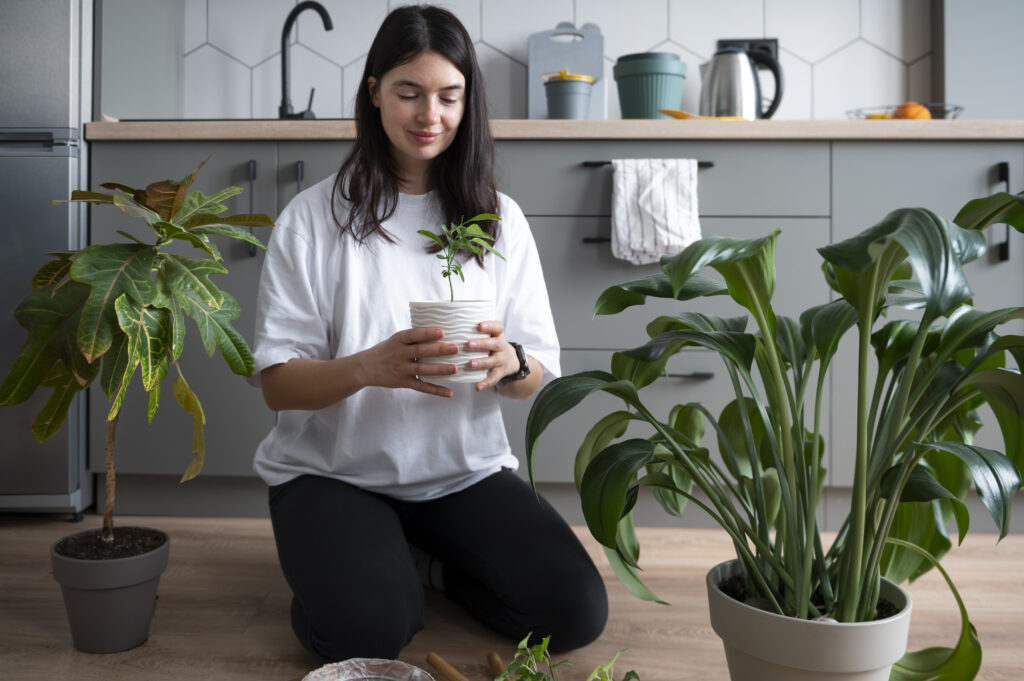
Conclusion: Your Happy Garden Journey
Gardening is a journey, not a race. Healthy plants bring happiness, freshness, and even food to your life. Avoiding these mistakes, following seasonal care, using proper tools, and practicing organic gardening can make your garden a thriving paradise.
Even small actions like checking soil moisture, pruning, and daily observation make a huge difference. For beginners, following the best gardening tips for beginners India ensures your plants grow strong, flowers bloom beautifully, and vegetables are abundant.
Remember, every garden tells a story nurture it, care for it, and enjoy the happiness it brings.
FAQs (Frequently Asked Questions)
- How often should I water my plants?
It depends on the plant type, soil, and season. Check the soil if it feels dry, water it. Most plants do well with watering early in the morning or late evening to prevent evaporation and root damage.
- What is the best soil for home gardens?
Loamy soil is ideal for most plants, as it retains moisture but drains well. For succulents, use sandy soil, and for vegetables, nutrient-rich composted soil works best. Always add organic fertilizers to improve soil health.
- How do I prevent pests naturally?
Use natural solutions like neem oil, garlic spray, or soapy water. You can also plant companion plants like basil near tomatoes, which repel pests. Introducing beneficial insects like ladybugs can help control harmful pests naturally.
- How important is sunlight for plants?
Sunlight is essential for photosynthesis, growth, and flowering. Some plants need full sun (6–8 hours), some need partial shade, and some grow well in low-light conditions. Observing your garden’s sunlight pattern helps place plants correctly.
- Can I grow plants all year round?
Yes, but seasonal care is necessary. Some plants need more water in summer and less in winter. Flowering plants bloom in specific seasons, while vegetables have seasonal cycles. Adjusting watering, fertilizer, and protection based on the season ensures healthy growth.
